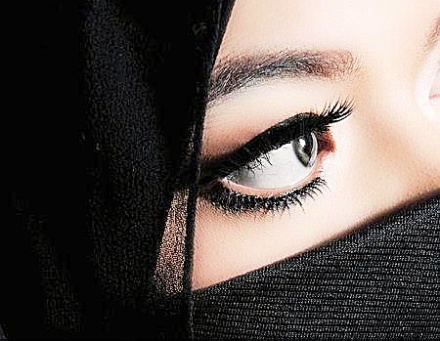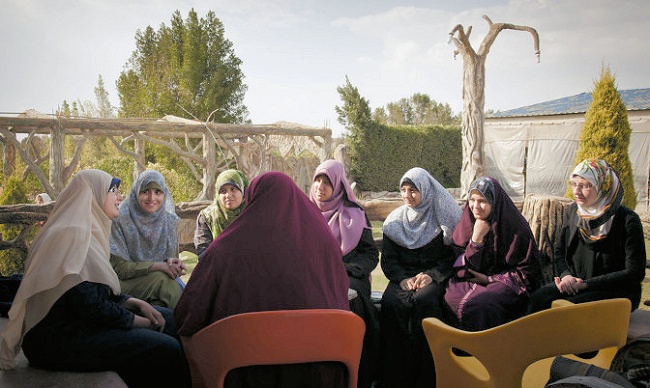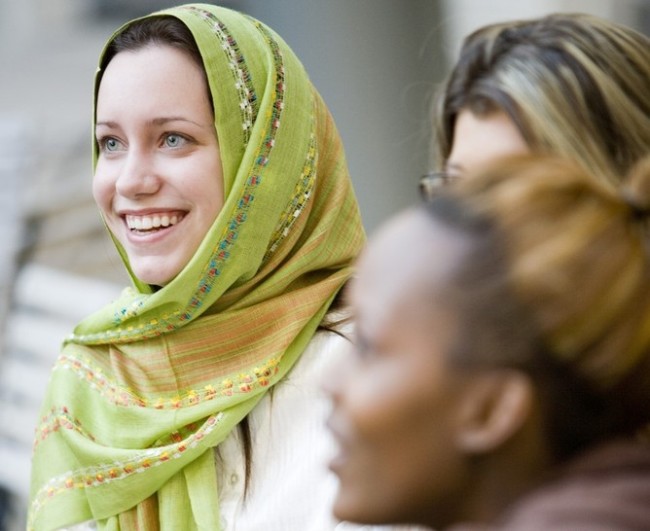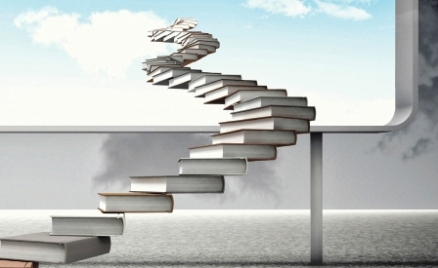Monthly Archives: March 2014
Gorgeous, wide-eyed beauties – the hurs – of Jannat
The Great Virtue of Lowering the Sight
Women in the Qur’ân and Women in the Bible
Precious Words to My Muslim Sister
Why women have a unique status in Islam?
How a Pearl Develops
In the Name of Allâh, the Most Beneficent, the Most Merciful
By Muhammad Alshareef
When news of the Christian army that had prepared on the horizons to wipe out Islam reached him, Abu Qudaamah Ash-Shaamee moved quickly to the Mimbar of the Masjid. In a powerful and emotional speech, Abu Qudaamah ignited the desire of the community to defend their land, Jihad for the sake of Allah. As he left the Masjid, walking down a dark and secluded alley, a women stopped him and said, “As salamu alaykum wa Rahmatullaah!” Abu Qudaamah stopped and did not answer. She repeated her salam again, adding “this is not how pious people should act.” She stepped forward from the shadows. “I heard you in the Masjid encouraging the believers to go for Jihad and all I have is this…” She handed him two long braids. “It can be used for a horse rein. Perhaps Allah may write me as one of those who went for Jihaad.”
The next day as that Muslim village set out to confront the crusader army, a young boy ran through the gathering and stood at the hooves of Abu Qudaamah’s horse. “I ask you by Allah to allow me to join the army.” Some of the elder fighters laughed at the boy. “The horses will trample you,” they said. But Abu Qudaamah looked down into his eyes as he asked again, “I ask you by Allah, let me join.” Abu Qudaamah then said, “On one condition, if you are killed you will take me with you to Jannah amongst those you will be allowed to intercede for.” That young boy smiled. “It’s a promise.”
When the two armies met and the fighting intensified, the young boy on the back of Abu Qudaamah’s horse asked, “I ask you by Allah to give me 3 arrows.” “You’ll lose them!” The boy repeated, “I ask you by Allah to give me them.” Abu Qudaamah gave him the arrows and the boy took aim. “Bismillaah!” The arrow flew and killed a Roman. “Bismillaah!” The second arrow flew, killing a second Roman. “Bismillaah!” The third arrow flew, killing a third Roman. An arrow then struck the boy in the chest – knocking him off the horse. Abu Qudaamah jumped down to his side, reminding the boy in his final breaths, “Don’t forget the promise!” The boy reached into his pocket, extracted a pouch and said, “Please return this to my mother.” “Who’s your mother?” asked Abu Qudaamah. “The women that gave you the braids yesterday.”
Think about this Muslimah. How did she reach this level of Taqwa where she would sacrifice her hair when today other women do the same to imitate Kafir icons, and her son when other women would die so long as their son stayed home. Indeed, she spent her life in the obedience of Allah, and when exam time came, she passed. Not only did she pass herself, but her children shone with that same beauty of Iman, children that she herself raised.
Very often – and perhaps in our times when we have forgotten much of the Sunnah – the lectures, khutbahs, and talks are all directed to the Muslim men. We forget that from the Hady – guidance and way – of Rasul Allah – sal Allahu alayhi wa sallam – was that he would allocate a specific day of the week to teach the women. Women would come up to him in Hajj, in the street, even in his home and ask him questions about the Deen. At the Eid Salah, after addressing the men, he would take Bilal and go to the women section and address the women. Allah revealed an entire Surah by the name of Surah An-Nisa – the Women. And another by the name of – Maryam. And a third by the name of al Mujaadalah – the women who pleads. It is in enlivening this Sunnah that today this speech shall be addressed to the believing women, al-Mu’minaat.
Dear Sister, Dear Mother, Dear Daughter. Everyone is looking for happiness and fun, and I am sure you are not excluded. Where is that happiness and fun though? And where and when do you want that happiness? Do you want happiness, do you want to have `fun’ in this life at the expense of the hereafter? Or is it in the hereafter, when you meet Allah that you want to be happy?
Every where you go you shall find a swarm of people and media and culture swearing to you that happiness is the happiness of the Dunya. Is it really happiness though? On the day of Repayment, Allah shall take the most `happiest’ kafir of the Dunya and dip him in Jahannam – Hellfire. Then he shall ask him, “Have you ever seen any happiness?” The Kafir will say, “Never!”
Nay, the happiness is only the happiness of the hereafter no matter what happens in this Dunya. Allah shall bring on the Day of Repayment the most tested human and dip him in Jannah – Paradise. He shall then ask him, “Have you ever seen sadness?” And that person shall say, “Never!”
And don’t think that this happiness and fun is exclusive to the hereafter. It is very much tied to this life as well. Listen and understand the words of Allah:
Whoever works righteousness, whether male or female, while he (or she) is a true believer verily to him We will give a good life (in this world with respect, contentment and lawful provision), and We shall pay them certainly a reward in proportion to the best of what they used to do (i.e. Paradise in the Hereafter). – Surah AnNahl (16/97)
Dear Sister, you have to understand that you or anyone may enter Hellfire! By Allah, we are not better than Fatimah, the daughter of Rasul Allah – sal Allahu alayhi wa sallam. And he said to her, “O Fatimah the daughter of Muhammad, Ask me whatever you wish from my wealth, for I shall avail you nothing to Allah.” Meaning that it doesn’t matter if you’re my daughter, if you don’t work for Jannah, saying to Allah that my father is so and so will not help you in anyway.
Islam is filled with many Mu’minahs that completed their Taqwa of Allah. When the other girls put up posters of kafir singers and kafir athletes and kafir actresses, you should put up posters in your heart of Fatimah and many other Mu’minahs.
Aasiyah, the wife of Fir’own. Her Eeman in Allah thrived under the shadow of someone that said, “I am your Lord, Most High!” When news reached Fir’own of his wife’s Eeman he beat her and commanded his guards to beat her. They took her out in the scalding noon heat, tied her hands and feet and beat her perpetually. Who did she turn to? She turned to Allah! She prayed, “My lord, build for me a home with you in Paradise and save me from Fir’own and his deeds and save me from the transgressive people.”
It was narrated that when she said this, the sky opened for her and she saw her home in Paradise. She smiled. The guards watched astonished – she’s being tortured and she smiles? Frustrated, Fir’own commanded a boulder to be brought and dropped on Aasiyah, to crush her to death. But Allah took her soul before the boulder was brought and she became an example for all the believing men and women till the end of time:
[And Allah has set forth an example for those who believe: the wife of Fir’own (Pharaoh) – when she said, “My Lord, Build for me a home with You in Paradise, and save me from Fir’own and his deeds, and save me from the transgressive-disbelieving people.] -Tahreem 66/11
When we talk about Jihad and Shuhadaa’ – martyrs, do you know who the first Muslim in Islam to be killed in the path of Allah was? It was Summayah, the mother of Ammar. When Abu Jahl heard of her Islam and her husband Yaasir and her son Ammar, he whipped them all and beat them. So much so, that Rasul Allah would pass by them as they went through this test of their Iman and would say to them, “Be patient O family of Yaasir, for you have a date set (when you shall enter) Jannah!”
As Abu Jahl beat Sumayyah one day, she refused to recant her Deen, something that enraged Abu Jahl. He took a spear as she lay on the burning sand, looking up to the sky, and he speared her through her midsection. She was the first of her family and the entire Ummah to meet Allah as a Martyr.
Dear Sister, our role models come from the Quran. You may have heard the story of the boy and the king. When the entire village became Muslim by the death of that young boy, the king ordered that an enormous fire be kindled and that all those who would not recant their religion be burnt alive. A Mu’minah, stood with her baby over the fire. She looked at her baby, and seeking her child’s weakness and innocence, she considered turning her back. The baby said to her, “What are you waiting for mother. Go forward for you are on the truth!” She nodded. Then with her baby in hand she was pushed to her death.
[And they ill-treated them for no other reason than that they believed in Allah, Exalted in Power, Worthy of all Praise!- * Him to Whom belongs the dominion of the heavens and the earth! And Allah is Witness to all things.]. – Surah AlBuruj, 8,9
And dear sister, your role models come to you from today. As her son tells us, a senior women in a Muslim land decided that all the vanity that normally happens in the gatherings of women was not for her. She turned to Salah and praying at night, and in her old age, she found herself calling to her so one night from her prayer room. He son says, “I came in and she was in Sajda saying that she was paralysed!” Her son took her to the doctors and she began a cycle of rehabilitation, but there was little hope. She then commanded her son to take her back home, take her back to her prayer room, take her back to that Sajdah. As she prayed to Allah in her sajdah, the night came when she called to her son. “Astawdi’ukallaah alladhee laa yadee’u wa daa’i’uh – I leave you in the trust of Allah, and whenever something is left in Allah’s trust it is never lost.” She passed away in her sajdah. Her muscles froze in that position and so they had to wash her body as she was in Sajdah. The prayed Janazah for her as her body was in sajdah. The carried her to the grave yard as her body was in Sajdah.
The buried her as she was in Sajdah. And the Prophet said that we shall all be resurrected on what we died on, she shall be resurrected on the day of judgement in Sajdah to Allah – Jalla Jalaaluhu wa taqaddasat asmaa’uhu – because that it how she lived and died.
Part II
There are many other stories that we know about of powerful believing mothers, wives and sisters and many, many that Allah only knows about. Whenever a halaqah is going on, the Muslim women outnumber the men. At the American Open University, (www.open-university.edu) the overwhelming majority of students are Muslim women. Go to an Islamic teachers/schools conference, attend a lecture and you shall see the mismatch of sisters to brothers. Sometimes it is sad to see all these brothers lacking the motivation that many Muslimahs have. But if there is a beautiful sign in all this, it is that – in sha’ Allah ta’ala – those sisters are going to raise an army of believing men and women in the coming generation. WAllahu akbar!
When Imam Ahmad was still young, his father died. He would tell his students of the work his mother went through in raising him, and he would pray for her. In the cold Baghdad nights, she would wake long before him to warm the water so that her son Ahmad could make wudu for Fajr. Then she would wrap him in blankets, herself cloaked in her Jilbaab, and guide him through the dark, cold alleys to reach the main Masjid, long before Fajr so that her son could get a good seat in class. Her son Ahmad – at that age in grade 2 or 3 – would sit all day long studying Quran and Sunnah, and she would wait for him to finish so that she could drop him home safely. At the age of 16, she prepared money and food for him and told him, “Travel for your search of knowledge.” He left for Makkah and Madinah and many other places and et many great scholars. She raised Ahmad to become one of the four greatest Imams in Islam.
Dear sister, after all this, ask a non-Muslim what it is that he wants from you? Does he want you to be liberated? Liberated from what? From Allah and his Messenger? From the Quran and the Sunnah? From Jannah? From this deen that Allah chose for you?
And what is he going to give you in return? Happinness? By Allah, he does not own any happiness to give. Is he going to give you love and protection from punishment in the grave and from the gateke pers of hellfire and from death? Why is it that they want to liberate young beautiful women? Why don’t they liberate the seniors? Why don’t they liberate the indigenous? Why don’t they liberate the inmates? Why is their target audience a young and skinny and tall women (their definition of beauty) between the age of 13 – 28? And why is their first call for you to take off your Hijab?
Remember that friend – if you consider him so – carefully, for – without any doubt, by Allah – he shall be your bitterest enemy on the day of Repayment:
[Friends on that day will be foes, one to another – except the Righteous] – Surah Zukhruf (43/67)
One Kafirah summed up exactly what they think of women, “It’s not who you are, it’s what you wear and what you look like!” And listen to Fabian, a french `model’ (of what?), as she spit on the fashion industry. “Fashion houses made me into a mannequin, a wooden idol. The mission: to manipulate hearts and alter minds. I learnt how to be worthless, nothing on the inside, cold. We lived in a world of filth in all that filth means.”
When the Prophet – sal Allahu alayhi wa sallam – stood on the plain of Arafah and gave his farewell speech he said to the Ummah, “Treat the women kindly!” History records that in Europe in the same year, at the same time that Islam was saying this, the Christian clergy were arguing hether a women was a human or an animal! Those clergymen are the ancestors of the Kuffar that now want to `liberate’ you.
There is much more than can be said. I shall conclude with the advice of Rasul Allah – sal Allahu alayhi wa sallam – to every Muslim mother, daughter, and wife: “If the women prays her five (Salah), fasts her month (of Ramadan), protects herself (from committing Zina), and listens to her husband, it will be said to her, `from any door you wish, enter Paradise!” Sister, that is where you want to be.
[O ye who believe! give your response to Allah and His Messenger, when He calls you to that which shall give you life; and know that Allah cometh between a man and his heart, and that it is He to Whom ye shall (all) be gathered.] – Surah Anfal 8/24
Allah and His Messenger are calling you to life. Dear sister, reply!
Courtesy of: kalamullah.com
Benefiting from Knowledge
Knowledge: A Basic Need.
4. Shaytaan will tell you that there are enough scholars, they don’t need you. Combat this with the fact that scholars shall die, and if the knowledge is not passed on to the next generation, it shall die in the community. There are 1.4 billion Muslims and the problem that always comes up is that there are not enough teachers and scholars. Everyone is a shepherd and everyone shall be responsible for his or her flock!
The Keys to the Life of the Heart
In the Name of Allâh, the Most Beneficent, the Most Merciful
by Shaykh Ibraaheem ibn `Abdullaah al-Haazimee
Ibn al-Qayyim, may Allaah have mercy upon him, said: “The keys to the life of the heart lie in reflecting upon the Qur’aan, being humble before Allaah in secret, and leaving sins.” [Haadee al-Arwaah ilaa Bilaad al-Afraah (p.45) of Ibn al-Qayyim.] Allaah, the Most High, said:
A Book which We have sent down to you, full of blessings that they may ponder over its verses, and that men of understanding may take heed. [Saad (38):29]
So Allaah informed us that He sent down this Great Qur’aan, blessed in its wording, meaning, commands, prohibitions and regulations. Amongst its blessings is that the one who recites even one word of it then he has a reward, and this reward is increased tenfold, as mentioned in the hadeeth reported by at-Tirmidhee, and at-Tirmidhee said that it is hasan saheeh. Also amongst its blessings is that the one who reads it and acts upon it shall not be misguided in this world, nor fall into distress and misery in the Hereafter as stated by Ibn Abbaas in the commentary to the verse,
Whoever follows My guidance shall neither go astray nor fall into distress and misery. [Taa Haa (20):123]
Amongst its blessings is also that the one who learns it and teaches it is from the best of people as occurs in the hadeeth reported by al-Bukhaaree, “The best of you is the one who learns the Qur’aan and then teaches it.” [Saheeh al-Bukhaaree Eng. Trans., 6/501 no.545]
Amonsgt its blessings is that it will be an intercessor on the Day of Judgement for its companions who used to act by it in this world as occurs in the two ahaadeeth reported by Muslim in his Saheeh. [Saheeh Muslim Eng. Trans. 2/385-385 no.1757, 1759]
He, the Exalted informed us that He revealed the Qur’aan so that its meanings, commands and prohibitions may be reflected over, such that if one were to come across a verse commanding something then he should follow it. If one were to come across a verse forbidding something then he should leave it. If one were to come across a verse concerning the Mercy of Allaah then he would hope for this Mercy and ask for it. If one were to come across a verse threatening with punishment then he would fear this and seek refuge with Allaah from it. If one were to come across a verse concerning the glorification of Allaah then he would glorify Allaah, and through this faith, knowledge, guidance and taqwaa will increase.
Allaah said while describing the believers,
And when His verses are recited unto them, they increase their faith. [Soorah al-Anfaal (8):2]
Due to their containing promises and threats that motivate hope and fear; and Allaah, the Most High, said,
Do they not ponder over the Qur’aan or are there locks upon their hearts? [Soorah Muhammad (47):24]
Amongst the ways of giving life to the heart is to be humble to Allah in secret. Meaning to desire and long for Allaah through supplication, seeking forgiveness, turning to Him, asking for victory, Paradise and shelter from Hellfire at the time when Allaah descends to the lowest Heaven in the last third of the night, as occurs in the authentic hadeeth,
“Our Lord descends to the lowest heaven when a third of the night remains, saying: Who is supplicating to Me that I may answer him? Who is asking of Me that I may give him? Who is seeking forgiveness of Me that I may forgive him?” Reported by al-Bukhaaree and Muslim.
This hadeeth contains encouragement to stand in the last part of the night, praying, supplicating, and asking for forgiveness, Paradise and safety from the Fire, and supplicating for good in this life and the Hereafter. Indeed Allaah has commanded us with supplication and promisd to reply, and He who is far removed from imperfection, does not break His promises. Amongst the times that this reply will be attained is the last part of the night, and this is a blessing that Allaah bestows upon whomsoever He wishes, and Allaah is the Possessor of great blessings and bounty.
And from the ways of giving life to the heart is to leave the sins that kill it, as in the hadeeth,
“When the servant performs a sin a black spot appears on his heart, and if he seeks forgiveness this black spot is removed, and if he returns to sin the black spot grows until his heart becomes black, and this is the ‘Raan’ about which Allaah spoke,
‘Nay! But on their hearts is the covering of sins (raan) which they used to earn.'” [Sooraah al-Mutaffifeen (83):14] [Reported by an-Nasaa’ee and at-Tirmidhee who said it was hasan saheeh.]
The poet said,
I saw the sins killing the hearts breeding ignominy due to their addiction And in the leaving of sins lies its life and it is best for your soul that you preserve it.
Source: Hearts & Their Cures
Translator: Abu Rumaysah
Courtesy Of: Islaam.com









